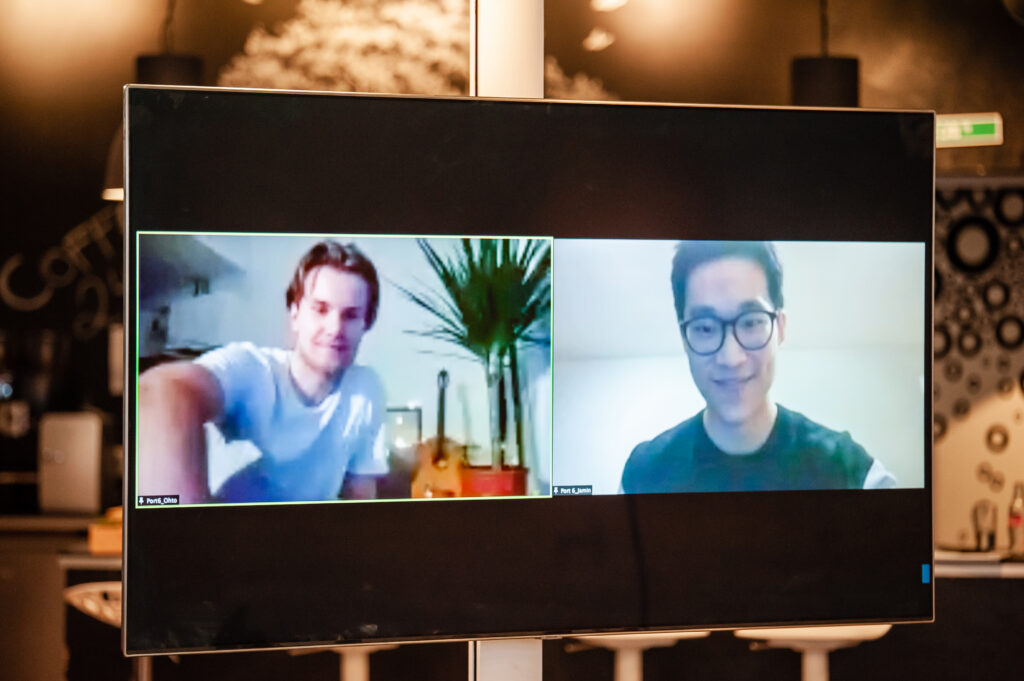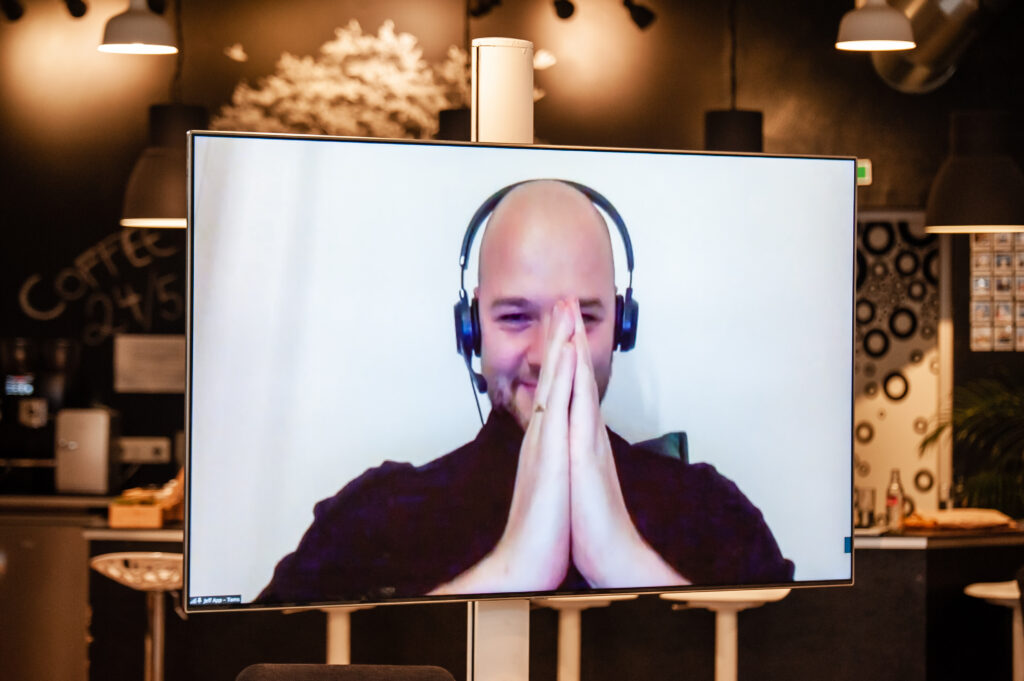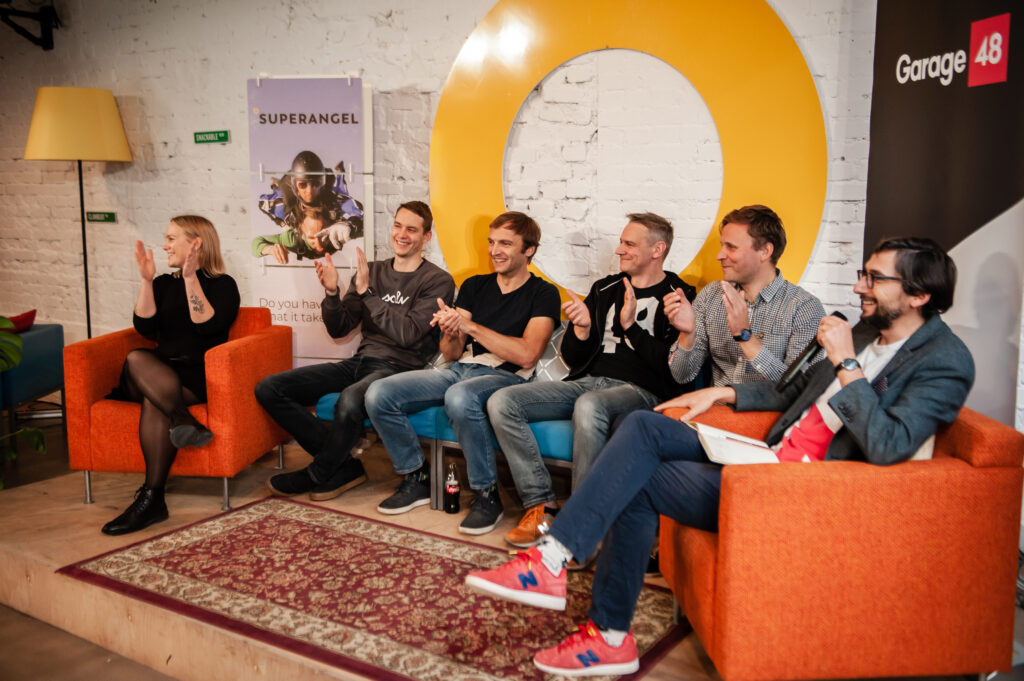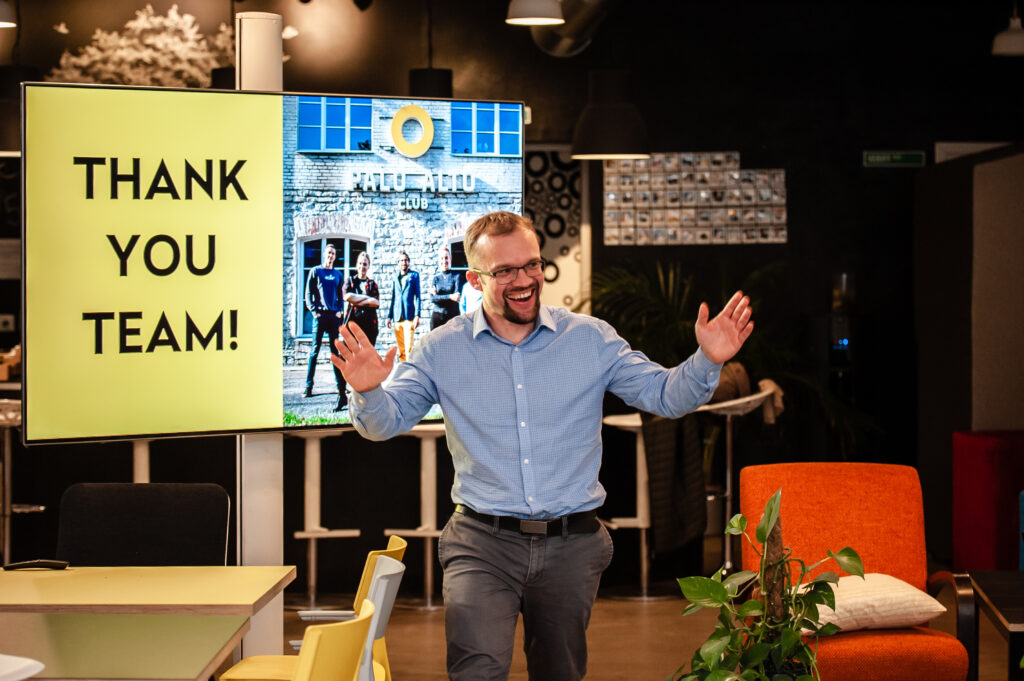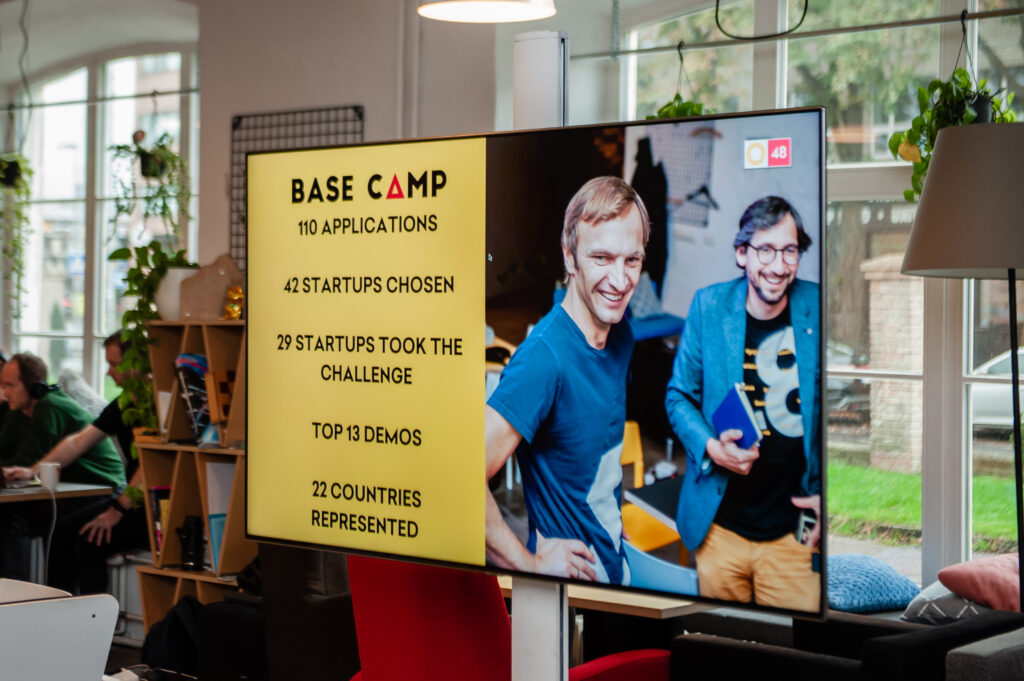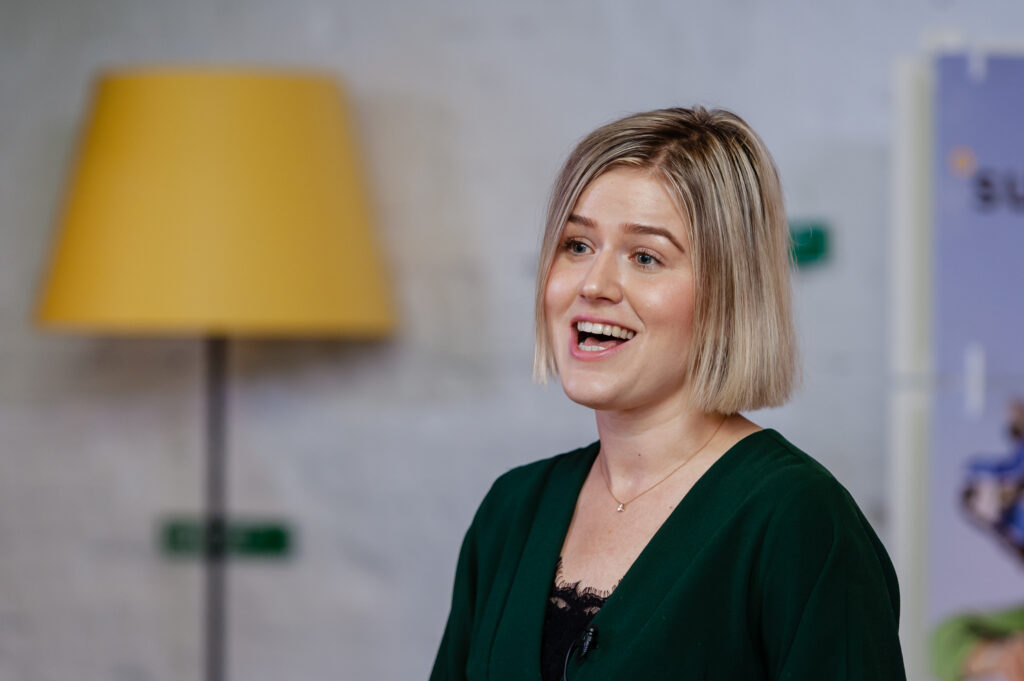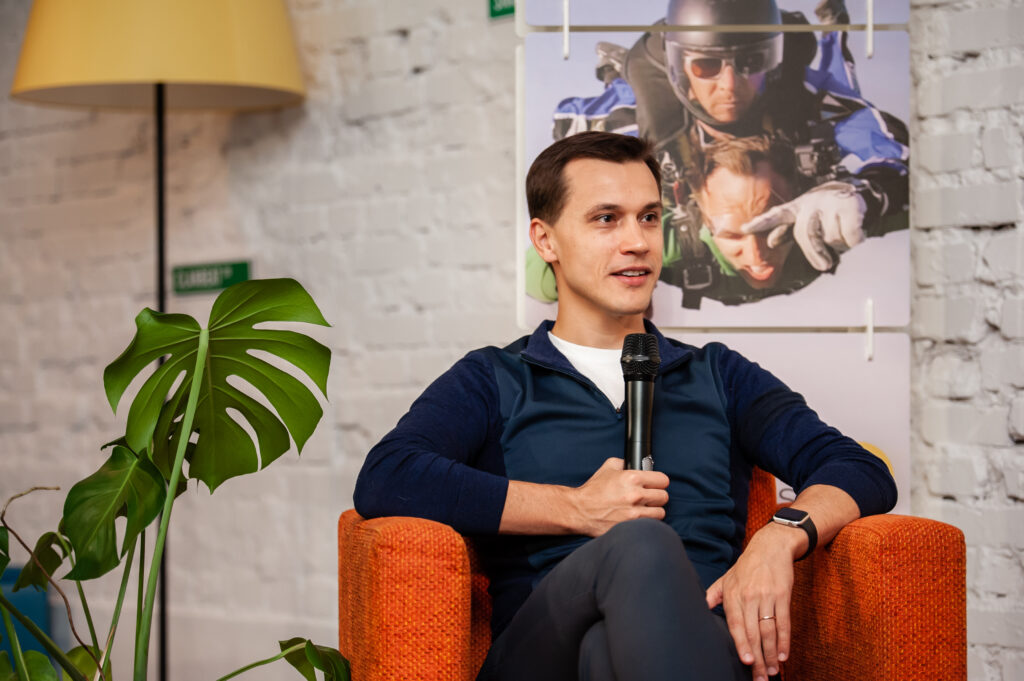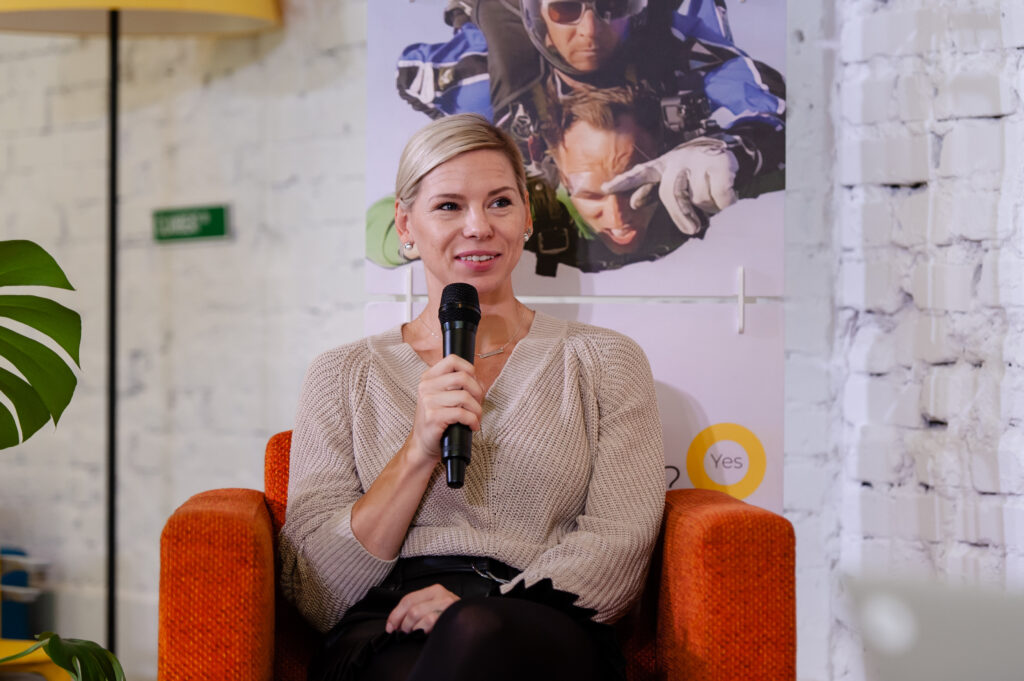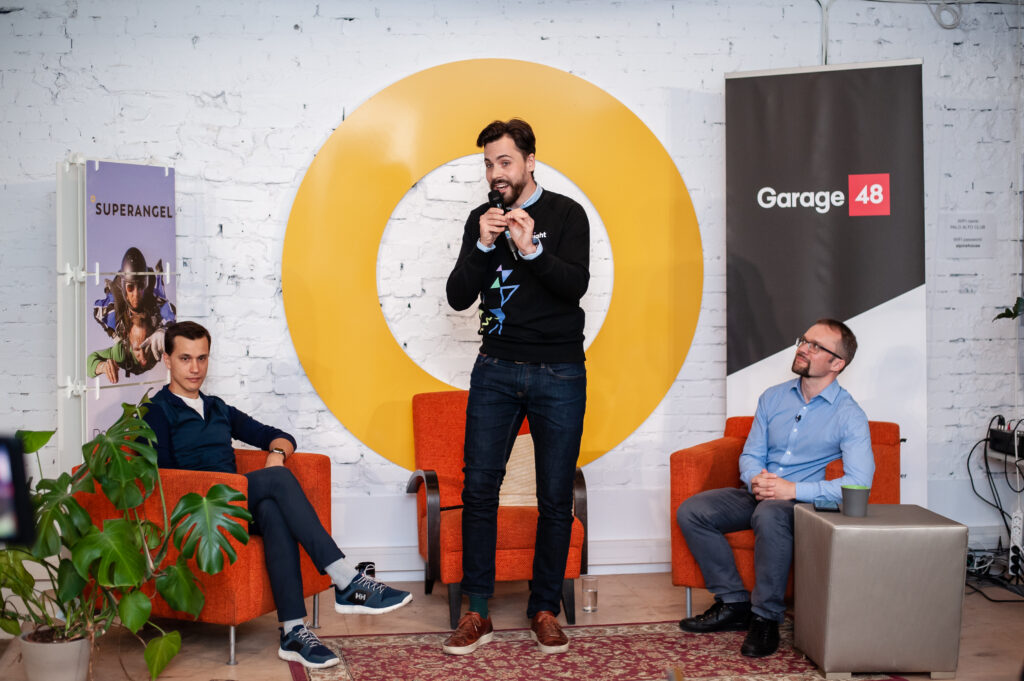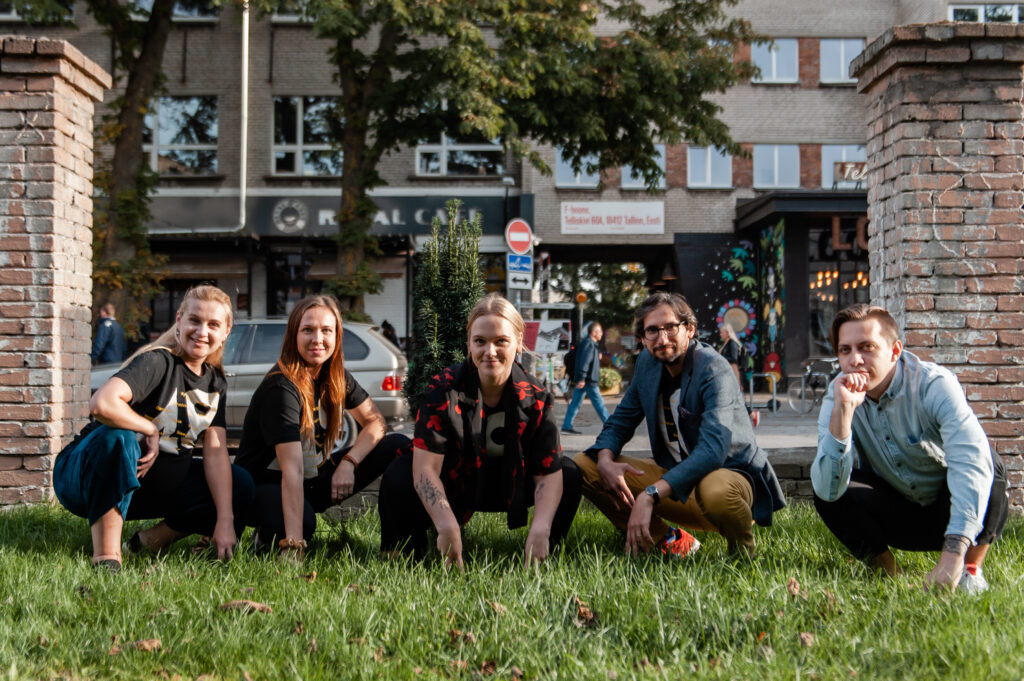You’re an early stage startup. You don’t yet have thousands of euros revenue flowing into the company every month. So, how to make the most out of marketing with a limited budget and get your feet off the ground? And how can you use marketing to lift up your sales team? Here are insights from Annika Ljaš, a Visiting CMO in a Superangel webinar.
Being a founder with no marketing expertise, it must be difficult to figure out which trend you should be currently following. Is it content creation and blogging? Google ads? PR? And what are the channels you should be using? OK. Let’s take a step back and start from the things that work and are at your disposal already today.
Interested in the topic? Check out also our growth hacking post on how to increase revenue without increasing ad spend with Kristel Tuul.
How to avoid mindless marketing?
One thing is for sure. You shouldn’t base your marketing strategy on trends and advice that does not match your goals. You’ll always be feeling like ‘Oh, I’m not doing that’. Be critical to what is actually working and what is simply a buzz from marketing people looking to sell you their services.
To be able to implement the right advice at the right time, you need to understand what is happening around you. What are your competitors doing online? Where do your clients spend time? Invest your time into online research and accomplish the following:
- Know your market and follow your competitors/companies similar to you. Track what they’re doing online by researching their activity within the last year, month, 24h. You’ll find out what could also work for you.
- Know your clients. Spend time where your clients do. Follow the newsletters they’re interested in. Track keyword trending on Tweetdeck to get up to date with the latest industry terms.
- Talk with your sales reps.
- Repeat everything that has brought you conversions and clients so far. Stay lean.
At the beginning of your marketing journey, nothing should be paid for. Especially if you’re in B2B. Use native tools such as LinkedIn, Facebook, Tweedeck, Google Analytics to get your feet off the ground. At this stage, the focus should be on creating content not aggregating and analysing loads of data. However, good metrics to bear in mind are unique visitors (MoM growth) and the channels they came from to understand which marketing channels are working best for you.
Don’t underestimate email
While people buzz that ‘cold emails are dead’, you might be surprised to hear that you can write emails that convert. The key is to keep them short and simply behuman. Avoid word repetition and try to sound conversational. A good practice is to finish the email with a concise, easy-to-follow message, e.g. It’d be great to hear your thoughts on this or Let me know if you are interested. I know it’s tempting to invite them into a Zoom call for a ‘quick chat’ but let’s face it: many people are tired of it. So avoid doing that in the first outreach.
It’s also good to bear in mind that you’re talking to a customer not a VC. Your customer wants to clearly understand what value you provide to them and they gravitate towards industry phrases not software ones. Be confident and keep an attitude that you’re equal to your client. Leave out things like “the current version of our solution / we are expanding” as they reduce trustworthiness. If you are too new to the market or your product is too early-stage, it’s likely that you will go out of business. And why should they risk that?
B2B marketing channels – are your customers searching for your solution?
Are your clients actively searching for solutions similar to your product? It may be that your client doesn’t even know to think of it. Therefore, before you jump into Google Ads and SEO, you first have a complex task of building awareness and demand.
There are good alternatives to ad marketing. In fact, the biggest change for effective B2B marketing has been on LinkedIn. Here are some quick tips to make the most of LinkedIn and generate leads with minimal budget:
- Update your own and your company’s Linkedin profile. Include featured videos, links to useful articles, etc.
- Ask your employees to add that they work in your company
- You can send out up to 100 invitations to follow your company’s Linkedin page per month e. Use them and ask your co-founder and core team members to do the same
- Before generating leads in a new market using Linkedin Advertising, you need to have 100 followers from this country to be able to use ads in their native language
- You and your early stage startup are quite indistinguishable. Use your own Linkedin profile to attract your customers towards the product. Start creating authentic posts regarding bigger trends and learnings. Avoid using too many emojis, article links, and tagging people just for the sake of it. Create a discussion. The key is for the posts to be genuine and to get as many people comment on them as possible
- If you’re sharing valuable learnings and insights regarding bigger trends and markets, use this opportunity to collect emails in return for a download of a high quality asset. For that, you can use Linkedin Lead Gen form ad format.
How to make Marketing & Sales cooperation work?
Start from setting up a strong online profile for the sales people and provide them with practical insights for improving Sales KPIs (e.g. open/response rate of emails) to generating blogs and PR. Good marketing can be a significant cornerstone for helping sales convert.
The secret ingredient for an effective collaboration is talking. The marketing team should create the right content that uses industry terms not startup terms. Include marketers in sales calls to help them understand what clients talk about and the language they are using, and make sharing notes on clients’ questions/feedback a good practice between the two teams.
Launch your product/service in the Lean Startup way
Today, there is no such thing as a ‘big launch’. Instead, typically when you launch a product, you already have loyal customers behind you who love your product. Big announcements require iterating and testing your message numerous times based on the feedback of the same very clients. Change the message and the campaign as many times you need to ensure you’re positioning your product correctly. Bear in mind that a good PR campaign can also lead to other goals that you had in mind, for example, attracting good talent. Be ready to leverage it.
Annika is a seasoned full-stack marketer and PR expert who has led marketing in notable technology companies like Planet OS and WePower. Today, Annika runs her own company Noontide that offers Visiting CMO service to early stage B2B startups. She has already helped over 20 startups get their feet off the ground.
Venture capital funds join forces with Baltic and Nordic universities, including Aalto University, University of Tartu, TalTech, Riga Technical University and University of Latvia to launch a unique investment readiness day for deep tech teams called Science Base Camp. The aim of Science Base Camp is to build a bridge between investors and future technologies to help accelerate the commercialisation of science-based products.
The first Science Base Camp will take place on 19th February and welcomes teams and startups with science-based products, which have a sizable software component. The applications are open for teams that are led by students, PhD’s or faculty members, and are either in the idea phase or with an already existing product. Applications are open until 1st of February.
According to Superangel’s co-founder Veljo Otsason, the initiative is a dedicated step towards identifying the next wave of future technologies: ‘Nordic universities are known for their innovation and forward thinking. Our common goal is to offer support to science-based solutions that experience long development periods, and offer more meaningful feedback than ‘it’s too early for us’.
In addition to Superangel, Science Base Camp is joined by numerous other VCs, like Nordic deep-tech investment funds Nordic Ninja, Voima Ventures and Maki VC as well as Superhero and Practica Capital. Among the mentors are also several successful tech entrepreneurs and angel investors such as Bolt co-founder Martin Villig, ex-Skype executive Sten Tamkivi, and former Facebook’s director of partnerships Markku Mäkeläinen. At the end of the day, the investors will assess which teams they can continue supporting for the next eight weeks with advice and relevant networks.
‘Combining science with entrepreneurship could be the start of something revolutionary, especially when a scientist and an entrepreneur are the same person. But these two worlds are quite different. To excel in both of them, it’s wise to listen to the advice of experts from another field, and not try to get through it alone,’ commented Ahti Heinla, co-founder or Starship.
‘It can take up to 10 years before science-based solutions reach the market. To shorten lengthy development time and increase commercialisation potential, it is necessary to engage potential customers early on in the process,’ added Otsason. The uniqueness of Science Base Camp emerges from the impressive lineup of mentors consisting of entrepreneurs, investors and experts. Throughout the day, they will actively think along to help teams identify opportunities that could accelerate development time and increase market potential. In practice, meaningful feedback has helped teams save years of development time and significantly raise customers’ readiness to buy the solution. Participants can also use the opportunity to learn from teams from other universities who might be a step ahead in certain areas, and network with an international board of experts and mentors.
According to Kristians Karlsons from Riga Technical University it’s important for RTU to be a part of the Science Base Camp initiative, as it provides a platform for taking the critical next steps towards commercialization for science-based ideas and projects. “In the near future, the Science Base Camp can prove to become a significant platform that brings together teams and their research from several universities, thus allowing for cross-university experience-sharing and collaboration when it comes to commercialization.“
Sven Illing, the Vice-Rector for Entrepreneurship at TalTech says Science Base Camp supports TalTech’s goal of taking science to wider society through spin-off companies. “Estonia has grown into an excellent platform for the growing software-based startups. I’m hopeful that we’re taking the next step with our ecosystem, and mentors and investors will emerge who are capable of supporting science-based technology startups.” He added that TalTech is open for partnership with Estonian and foreign investors.
Science Base Camp will bring together 12 ambitious teams who’d like to get feedback from investors and accelerate the commercialisation process. This is the first one of a kind initiative in the Baltics and Nordics with a plan to involve more universities and investors in the future.
We are excited to announce our latest investment in Port 6 – a company innovating human computer interaction! Superangel led the round with an investment of EUR 250,000. To ground any of our investment decisions, we typically look at the following categories – team, market, traction, tech, impact and excitement. So here is our take, why we invested in Port 6 and why we think this is the right time to build technology that redefines how humans interact with computers.
Team – Young and ambitious
The young and ambitious Ohto (CEO) has co-founded a short-term tenancy management company and Jamin (CTO) studies biomedical engineering at Imperial in London, and works as a visiting researcher at Aalto University. In a short period of time they have managed to build the first prototype and attract ex-FAANG employees as advisors.
Market – growing interest both from startups and big tech companies
Big tech companies are in the race for dominating the market of extended reality and shopping around for startups in the space. CTRL labs are allowing humans to control computers using their brains, and last year it was acquired by Facebook for $500m. Canadian smart glass producer North was acquired earlier this year by Google, not to mention other notable companies, such as Elon Musk’s Neuralink ($158m in funding), Paradromics and Neurable (raised $25.3m).
In terms of other applications, similar solutions include Enhancia.co, which transforms gestures into music and numerous solutions in the prosthetics space, e.g., Open Bionics (raised $5.9m), Atom Limbs and Esper Bionics – all are racing to create the first mind-controlled prosthetics. All in all, the market has a fair rate of activity, but does not have a clear market leader, thus we think there will be plenty of room for Port 6 to capture market share.
Technology and Traction – Unique tech with first pilot cases
Port 6 is a tech and research-heavy product and they focus on core technology that can be enabled in their partner’s manufacturing process. Notably, the company operates on an existing infrastructure layer (enabling software on straps of smartwatches) rather than building their own hardware and selling it directly.
Impact – high-impact business at the right time
Port 6 is a very high-impact business that has potential to change human’s interaction with devices, prosthetics, entertainment and kickstart innovation in other industries along the way. Likewise, we think this is a good time to build it – not too early and not too late. Mainly because on the development side we see a big activity from largest tech companies and on the consumer side we see a growing adoption of wearable devices.
Excitement – We are excited to back Port 6 and support the team in their journey!
Putting all the puzzle pieces together, we at Superangel think this is a very exciting opportunity that can make a dent in the world. We believe in the company’s mission and are proud to join their journey!
Onwards Ohto, Jamin and the team!
If someone told you the first step to increase revenue is to understand human psychology, what would be your first reaction? You’d probably think it’s vague. Alright, let’s get more specific. 95% of the decisions humans make are subconscious. Moreover, the attention span is very short: first impressions are made within the first seconds. Now think about your first customer acquisition channel – what would you change knowing this information?
Superangel Insight session with Kristel Tuul, a data-driven growth marketing expert was all about hacking human psychology and turning it to your advantage for nailing conversion . You’d be surprised how much digging into human behaviour can change the way you want to present your acquisition channels. The original webinar or a podcast are available to follow how Kristel thoroughly analyses the website of GDPR Register and VideoCV. Be prepared for a session packed with practical information you can implement already today.
Run a 5-second test to optimise the value-proposition of your product and attract high-quality leads
When potential customers land on your page, they behave differently depending on their awareness level – they may be unaware that the problem exists in the first place or they might already know your brand. Regardless, there are effective ways to optimize the acquisition channels to ensure the conversion of high-quality leads.
Firstly, put on your customer hat and run two tests, 5 and 30 second test, which allows you to understand how well your page communicates your messages. How does it work?
5 second test – watch the page for 5 seconds, close the screen. Ask yourself:
- What do you remember?
- Was it trustworthy?
- How did it make me feel?
Following the 5 second test, you should run the same procedure but this time at least 30 seconds or as long as you’ve managed to cover the content. Now ask yourself:
- What is the most important message?
- What is frustrating?
- What is confusing?
Pro tip! This practice works well as a funnel: start from your ads and continue with the landing page, product page etc. The best outcome comes when you run this exercise on a selection of people at your target group or even at a coffee shop to get a fresh opinion and input – experience shows the discoveries are 2x better with strangers.
If the customer will spend only a couple of seconds on your page, will it be enough for her to understand what is the value of your product?
Here are some practical tips to maximise impact:
- Bring out the value first – why should they use your product? Is it to save time or money or to increase revenue? With this in mind, have a look at what your competitors are doing. Understand how they’re positioning themselves and what’s the value they are selling. Follow it up by bringing out benefits and then functions that allow you to deliver the values.
- People skim read and only read headlines. Put the most important messages into headlines
- For the same reason, put the most important messages into the 50% of your page
- Use simple language and easy to follow structure: use bullets/italic/bold to bring out the most important information and break the reading pattern for the information to be actually noticed.
- Give the image of “easy” even if your concepts are hard – make it as easy for the customer to understand your offer as possible
- Use social proof to build trust – what have your customers or partners said before?
- Find out what’s the main device the visitors land on your page from. Make sure your website is mobile friendly and the message gets over the same way as from a computer screen.
Use mere exposure effect to create familiarisation
Have you ever clicked on an ad and realised you’ve ended up in a completely different place than you expected?
Most probably you left the page the same very moment. The same happens to your customer if you ignore the mere exposure effect – a tendency to develop preferences for things simply because we are familiar with them. In practice it means that the more you perceive a certain message, the more likely you’re to rate it positively and trustworthy. Thus, all messages in your funnel should support each other. Create familiarity through channels and avoid conflicting messages. It does not mean repeating the same message several times on the same web page
Survey your website visitors and existing customers to improve clarity
Getting live feedback from your website visitors and customers is the best way to hack what works well and what you are currently missing. Using questions like ‘what are the limitations of the current solution’ and ‘what matters the most for you in a solution’ is a great way of reaching the customers who are hard to interview. Use your customers also to optimise your tag line and value proposition: what are the 3 adjectives they use to describe your company/product and how would they persuade a friend to start using your product? It’s likely the answer is different to what you thought was important.
Do not multitask. Focus on 1-2 channels
Select active channel as first (e-mails, LinkedIn) and passive channel as second (SEO, content creation, word of mouth). Within these channels, constantly learn why something is working or not working – don’t just copy something from your competitors website that looks nice. You cannot be sure whether the conversion works or not. Instead, focus on your biggest growth opportunity by continuing visiting your prospects and customers for their input.
If you’re keen to learn more, check out these resources:
- UsabilityHub for testing
- Google Tag assistant
- Wappalyzer
- The Bullseye framework: a five-step repeatable process to maximize your chances of getting traction: brainstorm, rank, prioritize, test, and focus.
Books & online materials mentioned:
- Eric Riese “Lean Startup”
- April Dunford “Obviously Awesome”
- Aaron Ross “Predictable Revenue” and “From Impossible to Inevitable”
- CXL.com blog
This article is from a series of sessions between Superangel and brilliant experts & entrepreneurs on the most relevant topics for early stage startups.
In October, Jeff App won Base Camp 2020 global competition for early stage startups by impressing the jury with a strong capability to mobilise as a team and significantly advance the product in just 72 hours. Now raising a seed round, Superangel had a chat with the founder and CEO Toms Niparts on how Jeff App was born, how they plan to continue conquering South-East Asia and what is the most important lesson they have learned in building a fast growing startup.
In Summer 2019, two friends quit their well-established jobs and relocated back to Latvia to focus on building up Jeff – a loan broker for the unbanked. Started in January 2020 – probably the most unique time to launch the startup considering the global pandemic, they’ve successfully established traction in Vietnam with 150,000+ users and revenue growing at a rate of 70% MoM. Today, the app has been used close to 1M times.
Jeff’s success hasn’t gone unnoticed in the startup ecosystem. Prior to winning the Startup Day pitching contest, Jeff App won Seedstars Latvia and CEE, and last month they were also a runner-up in Arctic15. They’ve also been recognised by Forbes USA, Sifted, Singapore FinTech Festival and Slush as one of the top FinTechs to keep an eye on.
‘If you don’t have big audacious goals, it’s extremely hard to build a great company with big success.’ – Toms, the Ceo of jeff
Jeff App operates in a market with high growth potential. With a population of 570 million and a booming GDP expected to reach $4.7 trillion by 2025, the six largest countries in Southeast Asia represent one of the world’s largest and fastest-growing regions. More than 70% of the adult population, however, is either “underbanked” or “unbanked,” with limited access to financial services. At the same time, most banks find it difficult to meet the needs of the underbanked population because of the vast mismatch between traditional bank credit scoring models and the actual data the consumers have at their disposal.
To change that, Jeff has created a loan brokerage app that utilises alternative data to boost financial inclusion in South-East Asia. For banks, Jeff becomes a lead generator that can bring new business and services a much bigger customer base. They provide a large number of new, valuable insights derived from digital footprint and various alternative and behavioural data sources.
Founding the company in Latvia, operating in Vietnam. How does it work?
The global economy is changing and building a company remotely is easier than ever before. Nevertheless, the founders quickly realised that local knowledge is everything – the culture, behavior and customer needs are different. Thus, whilst the technical team is located in Latvia, the customer and partner facing team operates in Vietnam.
It’s clear that the founding team is not afraid to go big – entering the South-East Asian market is incredibly exciting. Achieving a considerable user base would probably take years in smaller European markets but in Vietnam the market potential is much bigger. At the same time, Toms wonders if Baltic startups are dreaming big enough as building a company only in the Baltics diminishes the market size significantly. He follows, ‘If you don’t have big audacious goals, it’s extremely hard to build a great company with big success.’
The most important lesson: People create the business. Make sure they are in for the right reasons
Today, there’re 8 full time employees behind Jeff App in Latvia and Vietnam covering a range of expertise, including digital marketing, design, business development, data analysis and software development. Toms admits that T-shaped skillset and thinking is a very important aspect when putting an early-stage team together. Additionally, they’re looking for strong A players: people that have very strong domain understanding and deep experience in their area. In that way they’re considerably decreasing onboarding time, adding value sooner and maintaining internal communication and simplifying the know-how exchange.
The hiring process has also been the greatest learning point for Jeff’s team. ‘We learnt this the hard way. At an early stage, if someone wants to join your team only for a salary increase, run for the hills.’ In Toms opinion, it’s very important to understand right away what the person is looking for in his/her next challenge and how it aligns with what you can actually offer. ‘Be brutally honest about this – otherwise you’ll waste your key resource: time.’
Base Camp gave Jeff App the opportunity to advance the product and take a step back from day-to-day hustle
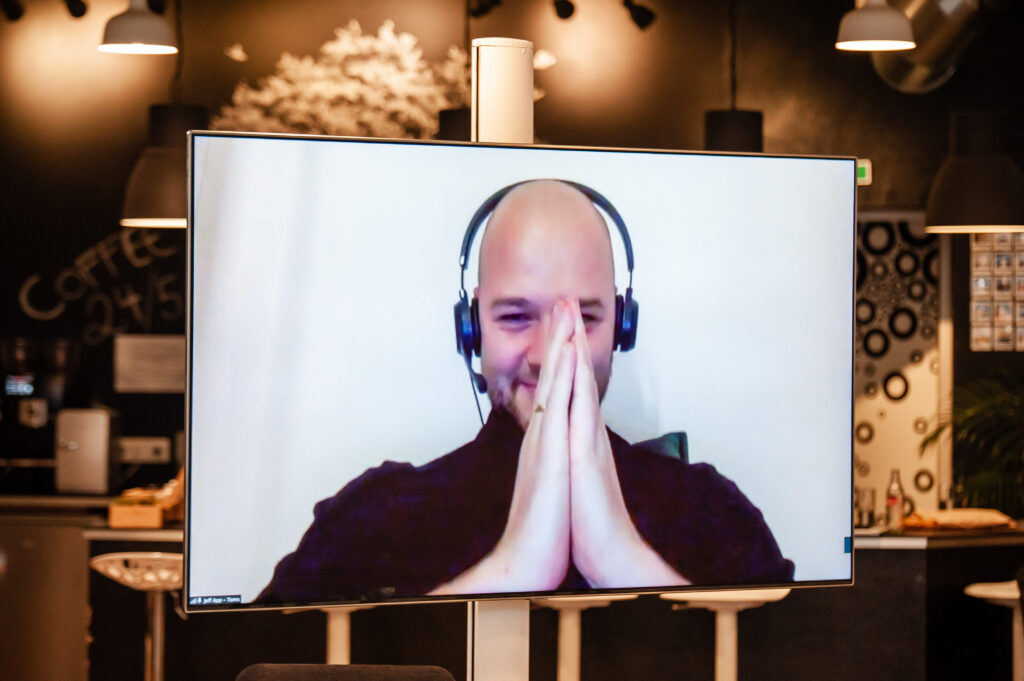
Out of 120 applicants, Jeff was one of the 29 teams who was invited to attend Base Camp Autumn 2020, a biannual 72h product focussed hackathon organised by Superangel and Garage48. Toms thought Base Camp to be an excellent opportunity to isolate from the noise and be laser focused on one idea: ‘An early-stage startup always has a great deal of ideas and hypotheses to test. At the same time, it’s easy to float away and shift focus to some urgent things to fix.’
The team decided to work on an idea that they had discussed internally for a while- lender portal. The lender portal is a free-to-use web application for Jeff’s partner banks and lending partners to conveniently access incoming client flow. Considering that APIs are non-existent and exchanging data in South East Asia is currently inefficient, the system not only puts a new, better infrastructure in place, but also helps increase the number of prospects for lenders by 3-5x.
Base Camp also gave Jeff the chance to discuss their business with entrepreneurs who’ve been there before. ‘It can get hard to look at the big picture with a clear perspective.’ reflects Toms. ‘Getting clarity and understanding is hugely important to reset the course again. From tips on UX and UI to high level business talks, sessions with Base Camp mentors were valuable.’
But why should any early-stage startup attend Base Camp?
„Number one reason is focus. Then comes competitiveness and contacts, and besides: Why not? What do you have to lose?”
Base Camp Spring 2021 takes place again in March. Are you an early stage startup looking to work with the best experts and investors, and gain deep knowledge to advance your business and product? Follow our social media and be the first one to be notified when the registration happens.
Check out our posts also on Medium.
We at Superangel are glad to welcome Harshita to Superangel team for the next 8 weeks. Harshita joined us through 101 Fellowship – a practical program designed for young people who are interested in venture capital.
What Is Your Background?
I am a senior at the University of Wisconsin-Madison studying Computer Science, Economics, and Mathematics. My work experience has been quite diverse for the past four years. I have interned as a data scientist at Discover Financial, a software developer at Liberty Mutual, and a business consultant for my university. I have found all of my work experiences to be incredibly fulfilling, but what I am most proud of, is my time as a business consultant. In this role, I was able to help 20 startups get their bearings and put them on the path to success.
Why Venture Capital?
I chose to enter the world of venture capital for two reasons. First, I want to be a part of a field where my experience in technology and business would make me a valuable asset. Second, and most importantly, I want to be a part of a culture that is constantly innovating and making the world a better place. Startup culture is frequently disrupting markets and changing lives. I believe being a part of startup culture through venture capital allows me to be an integral part of this phenomenon through supporting innovators with great ideas and guiding startups towards creating a new and better reality.
Startup You’d Invest Your Tuition Fee In?
Airbnb. I would invest in Airbnb because of its product management processes and focus on customer experiences. Brian Chesky, the CEO of Airbnb, is unmatched when it comes to finding what consumers not only want but desperately need. The company’s ability to innovate and overcome new hurdles shows that the company can be successful and resilient in the long run. Additionally, I find Airbnb’s journey from a place where people could rent out their apartments or mattresses to strangers to now creating an entire personalized vacation experience to be quite innovative and inspiring.
What Book/Podcast Do You Most Frequently Recommend To Friends And Family And Why?
Books I often recommend to people are: Outliers, the Field to Human-Centered Design Thinking, and the Harry Potter series. Outliers by Malcolm Gladwell is a great book that examines success and failure and what factors help create the former. I found the anecdotal snippets of the book to help put my life in perspective and help me question my internal dialogue of what the meaning of success and failure is in my own life. I found the Field to Human-Centered Design Thinking to be an unconventional book to recommend to people. However, I found the book beneficial to those wanting to become an entrepreneur. It discusses how to create products best for the user but also provides examples of where human-centered design has benefited companies and consumers. Lastly, I will always recommend the Harry Potter series, because, in a year like 2020, everyone could use a small escape to a world full of wonder and magic.
We at Superangel are glad to welcome Rahul to Superangel team for the next 8 weeks. Rahul joined us through 101 Fellowship – a practical program designed for young people who are interested in venture capital.
What is Your Background?
I have a complicated international background, being half Indian and half Belgian, living in London, and growing up in Singapore, the Netherlands, and Wales. I’m currently a student at Middlebury College in Vermont, where I study Economics and Philosophy. I’ve had previous internships at two London-based startups, CognitionX and Fractal Labs, where I did all kinds of jobs and learnt a great deal about the startup world, building a company, and cutting-edge technology.
Why Venture Capital?
I’ve always been fascinated by startup culture and technology because of the potential they have for radical change on a massive scale. I consider myself to be an open-minded, out of the box thinker, which I feel lends itself well to the startup and VC environment where a mindset like that is necessary to succeed. To me, VC is an incredible space to be involved in because it gives you the opportunity to work with lots of great people and ideas, and help the best come out of them.
Startup You’d Invest Your Tuition Fee in?
Tesla. I think Elon Musk is a true genius who is doing an incredible amount of good for the world in areas where no one has taken the risks nor been as successful as he has. It’s overwhelmingly clear that electric cars are the future, and Tesla is leading the way and setting the standard for the rest of the industry. Their new Gigafactories in China, Germany, and the US, combined with their recent record production numbers and profits are all signs that the hardships the company faced from 2017-2019 are long gone and the potential for future growth is enormous.
What Book/Podcast Do You Most Frequently Recommend To Friends And Family And Why?
I’m a big fan of the Joe Rogan Experience because it involves a wide range of guests with all kinds of different expertise and talents, making each podcast a real learning experience. My top non-fiction books include AI Superpowers by Kai-fu Lee and the Elon Musk biography by Ashlee Vance, which I both cannot recommend enough. I don’t read a lot of fiction, but when I do I like something a bit philosophical. My favourites include 1984 by George Orwell and Siddartha by Herman Hesse, and I also recently enjoyed Bluebeard by Kurt Vonnegut.
Welcome Rahul and onwards!
What is possible for an early-stage startup in 72 hours? Is it possible to get 20 contracts signed for a new B2B product, build and launch a new B2C product with first 50 users in 24h, shorten sales cycle 3-5 times, launch a giveaway game reaching 50k people, and extend virtual reality with music? Base Camp participants showed it is.
Superangel in collaboration with Garage48 has finished the 72 hours Base Camp hackathon, this time bigger than ever. For the 5th time, we brought together early-stage startups from all around the world and supported them to take their products (and businesses) to the next level in 72 hours. With 120 applicants, 35 experts, 68+ hours of mentoring sessions, 22 countries, and 13 finalists, the anniversary Base Camp proved to be a great success. Big congratulations to the winner Jeff App, and runner-ups Edumus, Port 6 and Relancer!
‘taking part in Base Camp was a truly empowering experience accelerating the development of our product and opening a lot of doors for future growth.‘ – edumus
Base Camp is an exclusive and competitive 72-hour virtual product-focused hackathon for early-stage startups. Startups set their own goals for over the weekend product & customer validation sprint. Supported by valuable insights and shortcuts from top-class mentors, startups can take their product to the next level and prove to investors that they can get the job done in 3 days. During the previous four Base Camps, we’ve boosted over 40 startups all over the world, 21 of which have raised over 16M€ since last year.
The 29 selected teams for the Base Camp Autumn 2020 showed strong competence, dedication, and quality, making it a tough competition for all startups. It’s not easy to mobilise your team for 3 days in a row but despite that, the startups came to Base Camp with great ambitions and goals, and maintained focus until the end of the hackathon. In addition to improving the product itself (with some teams launching completely new products and features), teams were advised to contact potential users and customers for live feedback and push their business as much as they can using the knowledge from our mentors and expert sessions. The outcome?
In 72 hours early-stage startups were able to accomplish the impossible:
- Signed 20 contracts for a B2B product
- Built and launched a new B2C product, getting 50 first users in 24h
- Launched and reached 50k people with a Kia Stinger giveaway game
- Got 5 potential B2B clients to give feedback according to rules of Mom Test
- Signed 5 LOIs in 24 hours
- Shortened sales cycle by 3-5 times
- Extended virtual reality by creating music using your hand movement
- Revamped the cold email/calling strategy
And much more! The hackathon was also a great opportunity for team building – many startups realised they’ve got skills in the team they never knew of.
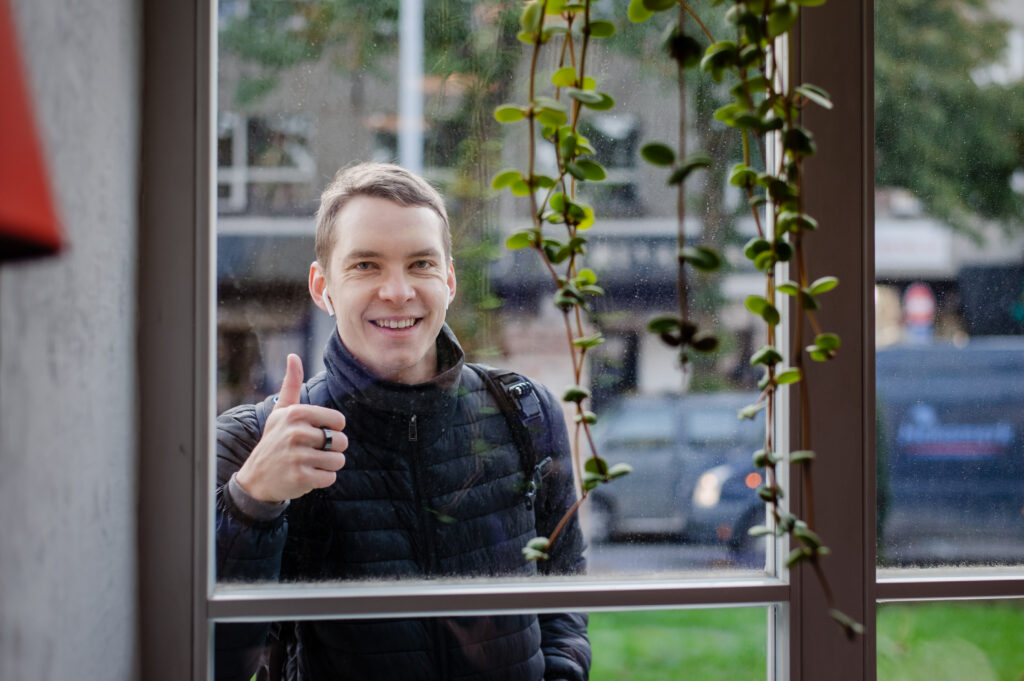
What is the secret sauce of Base Camp hackathon?
The success of Base Camp is strongly tied to our mentors and field experts, ranging from marketing, sales, fundraising, business development, design, product development. All startups were paired with mentors based on their interests and needs – altogether around 90 mentoring sessions were conducted totalling in 68 hours of wisdom shared to startups. This is the secret sauce and a reason why many teams were able to approach potential customers in a better way, adjust their business models, build connections in new markets, and improve their products significantly.
In addition, we delivered two workshops on customer validation and sales, and interviewed 3 experts on productivity, sales, pitching, and fundraising. Rainer Sternfeld from Nordic Ninjas emphasised the importance of the team, especially when investors look into early-stage startups with not a lot of milestones behind them just yet. He added: ‘During investor meetings, investors are testing the mindset of founders. Pitch and pitch deck are key to unlock the door, but the real test is showing your depth.’ As an extra treat, Base Camp startups got an exclusive interview with April Dunford, the author of Obviously Awesome and expert on tech product positioning. Main point? Good product positioning comes from following a process not spitballing ideas.
TOP13 and Winners
The startups were assessed on 4 main criterias: team, traction, business model, and progress during Base Camp. Although we planned to pick out 12 teams, the competition was really strong and we had to let 13 teams to the finals. Similarly, we couldn’t conclude with only 2 runner-ups. So who are the teams who made the most of the hackathon and fought themselves in front of the jury?
Jeff App – WINNERS
Jeff App is a loan broker that helps over 1 billion unbanked people in South-East Asia to access financial services by utilising alternative data
‘Basecamp was an amazing opportunity for us to focus on something that we had discussed as a great addition, but hadn’t managed to get to it. The turnout was amazing, as we not only managed to really isolate our product and development focus, but also get surprisingly rapid involvement by our clients. We had a game-changer idea in our backlog & thanks to the event we realised its true potential and put really solid foundation in place for shipping the product.’
Runner-ups in alphabetic order:
Edumus – Edumus enables schools to engage working professionals in teaching – one grade, one subject at the time, for one school year
We came to Base Camp with a clear plan to develop our platform for our key users – the headmasters – and gain feedback on our strategy to internationalize Edumus. During the event, we were connected with excellent mentors who helped us leap forward in both of these areas. Thus, taking part in Base Camp was a truly empowering experience accelerating the development of our product and opening a lot of doors for future growth.
Edumus also won the AUDIENCE FAVOURITE award!
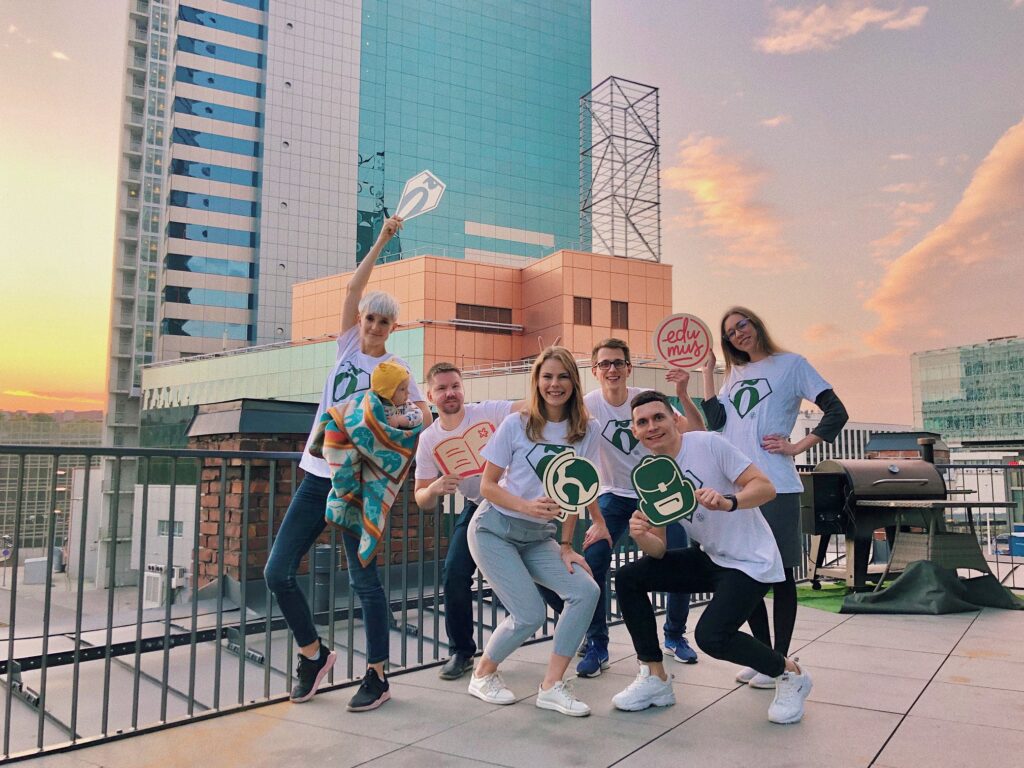
Port 6 – Port 6 is virtualising natural human movement
We had a splendid time during the Base Camp weekend! We learned about some struggles augmented reality developers are facing and we can begin considering these current restrictions in our work. We also really liked the Think Tank format of mentoring, as it forced us to reflect on our assumptions with building the company we want to create.
Relancer – Relancer is a marketplace that helps founders and managers work with professional recruiters who help them grow their teams. Relancer has a special connection with Base Camp. It was their fourth time.
For us, the key has been finding a balance between conviction in our beliefs and mission VS knowing when to let go of something and move on – making small changes all the time. I guess it’s learning by doing and getting punched in the face. As LaMichael James says, “Nobody’s taller than the last man standing.”
The winners and runner-ups were in a tough competition with 9 startups in the finals. All pitches can be found here.
- Checkspot – Discount restaurant menus near you and optimise expenses with restaurant AI
- eTEU – eTEU is a digital platform that enables freight forwarders to save significant time through the automation of document drafting and allows them to securely transfer the trade documents through the blockchain network
- Taut (Homestudy) – Fastest way for teachers to give feedback
- IPOHub – IPOHUB is making SME growth markets transparent and bringing together individual investors to enjoy the benefits of institutional investors
- Lightcode Photonics – Using 3d cameras to change the way how robots see us
- Sharentic – Marketplace for people to share, lend and rent things seamlessly, safely and without much of a hassle
- Syncreality – The first game developer tool to create auto adaptive playfields for home XR
- VideoCV – a modern video recruitment platform
- Werk – Werk solves the biggest pain in European construction – finding qualified temporary workforce
Congratulations also to all other teams (Vyorious Poland, Skillcheckers, Pointship, Skyrocket Your Team, Pagerr, CompAct, KoduLine, Partnerbow, Real Home Network, Fizure, CureAssist, BeeSage, Basaar, Greta Carpool, ArkrisAI, KRATT, Fleetsimplify) who showed impressive progress and commitment! We are so happy that you joined us for the anniversary Base Camp.
Superangel and Garage48 would like to thank all startups that applied, participated and made Base Camp so amazing. We’re happy to welcome back any previous teams and always keen to meet new startups. Stay tuned for Base Camp Spring 20201 and keep following our updates on social media!
We at Superangel are super excited to have Kaari Kink joining the team. She joined Superangel’s Venture Development team and is helping support the growth of our portfolio companies. We asked Kaari about her previous experience and why is she fond of early-stage technology companies.
What is your background?
I studied and worked in the UK for 4 years, and only recently moved back to Estonia. My most recent experience was working at a health technology startup Triumf Health, where I was involved with everything related to scaling the solution, including marketing and communication, the customer as well as market validation, and raising capital. This was an amazing opportunity to get the first-hand experience in helping early-stage startups grow. As a side-project, I’m running an organisation that supports women and girls in their professional and personal life, and help out in initiatives that bring entrepreneurship opportunities closer to young girls.
Why do you like early-stage technology companies?
Early-stage startups are like the beginnings of great stories – you keep reading because you’re excited to know what happens next, and hold your breath for plot twists. I also see early-stage startups as a place where quality, personalised support can make the biggest difference whether the startup is going to take off or not.
Why did you decide to join Superangel?
Superangel reputation precedes itself. Even before applying I had heard about the great people and success behind the company. Working in Superangel takes me out of my comfort zone in a positive way, and I’m really motivated to grow and contribute to Superangel’s mission.
What book/podcast do you most frequently recommend to friends and family and why?
Black Box Thinking by Matthew Syed, Factfulness by Hans Rosling, Never Split the Difference by Chris Voss & Lean In by Sheryl Sandberg. Currently in my list to read there’s also Why We Sleep and Who Can You Trust by Rachel Botsman – can’t recommend them just yet but ask me again in a couple of months!
Welcome Kaari and onwards!
We at Superangel are super excited to have Diana Lace – Davidova joining the team. She joined Superangel’s investment team and is helping to find the best early-stage startups. We asked Diana about her previous experience and why she is fond of early-stage technology companies.
What is your background?
I have been on different sides of the startup ecosystem. Over the past years, I have had my experience in an ed-tech startup Edurio, setting up an accelerator program and VC fund Overkill Ventures & community building at Latvian Startup Association. Out of all things I’ve done, the common thread is working with early-stage companies (which I enjoy most), thus, I joined Superangel.
Why do you like early-stage technology companies?
I like building things 0 to 1 and seeing how great companies are built. To me, early-stage startups are exciting because of all of the moving parts – operating with vast opportunity and uncertainty is interesting.
What book/podcast do you most frequently recommend to friends and family and why?
Some of my favourite books are Homo Sapiens by Yuval Noah Harari, Justice by Michael Sandel and Principles by Ray Dalio. I recommend these reads to everyone, as they are useful regardless of age or career path. I am also a fan of the Morning Brew newsletter for daily news.
And I’d definitely recommend my favourite childhood book – Harry Potter.
Welcome Diana and onwards!
